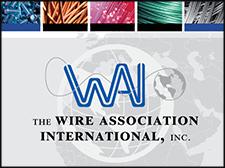Vial Check - Intelligent Multi-camera System for Quality Control of Vaccine Bottles
Why Simulation Is Critical for Driving the Next Era of Manufacturing
Dynamic Micro-CT: Moving beyond 3D into 4D
American Steel
VFDs-How Smart Selection Saves on Costs
Achieving Plant Resiliency - Automation Technologies That Can Make Production More Effective
How to Break Free From the Dependence on Intuition and Unique Skills in Maintenance Work
Why AGVs Can Be The Solution in Logistics
Successfully Implement a Cobot into your Operations: Step 2 - What Role Do Integrators Play In This Process?
Project Modeling: A New Way to Think of CPQ Software for Large Engineer-to-Order Manufacturers
The Machine Control Architecture That Adapts to Ever Changing Market Requirements in the IoT Era
Lack of Automation is Holding Additive Back
Accelerating Digital Transformation to Support Post-Pandemic Growth
To Adopt Industry 4.0, We Must Look to the Lighthouses
Transforming Workplace Training With the Most Effective Digital and Augmented Reality Tools
Records 601 to 615 of 1793
First | Previous | Next | Last
Featured Product

The Wire Association International (WAI), Inc.
Manufacturing and Automation - Featured Company

